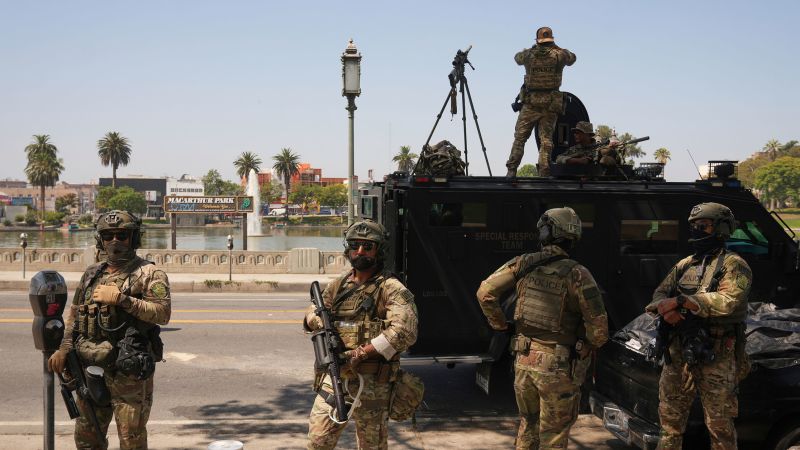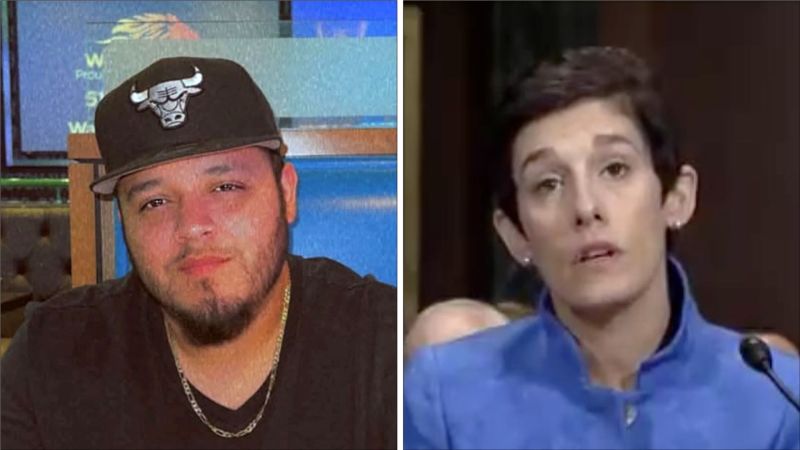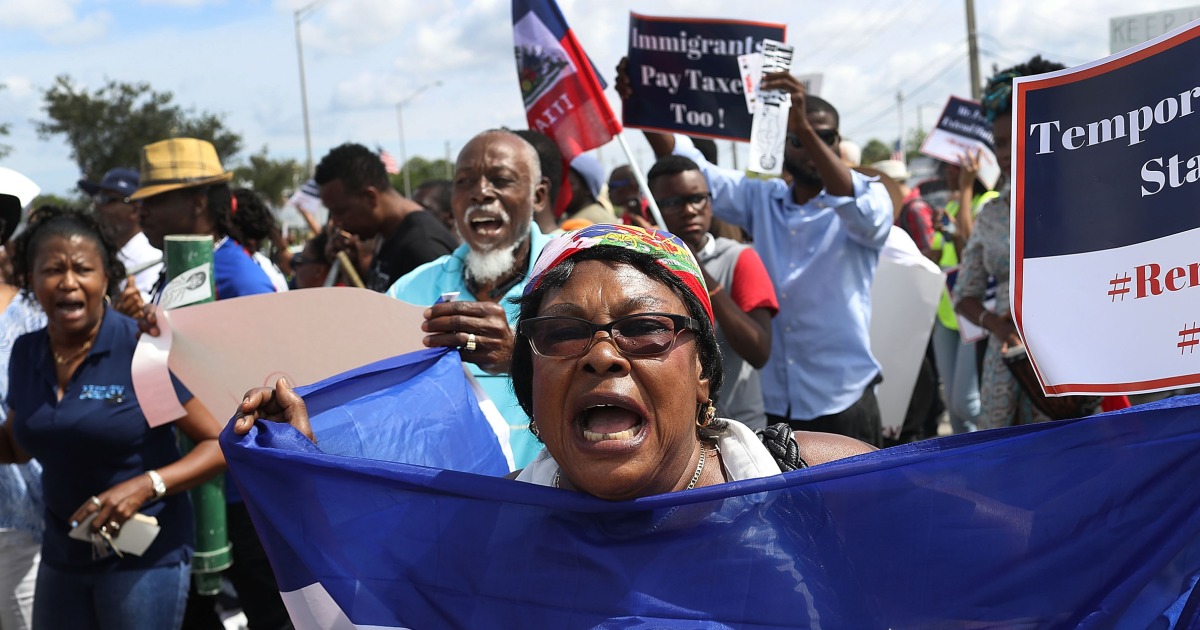Federal Judge Rules Against Discriminatory Immigration Arrests in Southern California

Introduction
A federal judge has ruled that the Department of Homeland Security must stop making immigration arrests in Southern California without probable cause. This comes after the judge found that the department has been detaining individuals based on factors such as race, spoken language, and occupation.
Current Situation
The ruling was made in response to a lawsuit filed by the American Civil Liberties Union, which argued that the Trump administration's immigration enforcement tactics were discriminatory and violated the Fourth Amendment. The judge's order requires the department to stop detaining individuals based solely on these factors and to provide evidence of probable cause for each arrest.
Impact on Communities
This ruling is a significant victory for immigrant communities in Southern California, who have been living in fear of being targeted and arrested without reason. It also serves as a reminder of the importance of upholding the rights and protections guaranteed by the Constitution, regardless of one's
About the Organizations Mentioned
Department of Homeland Security
The **Department of Homeland Security (DHS)** is a U.S. federal agency established in response to the 9/11 terrorist attacks to safeguard the nation from a wide range of threats including terrorism, natural disasters, cyberattacks, and border security challenges. Its core mission is to protect the American people, critical infrastructure, and uphold national security by coordinating efforts across government and private sectors. DHS oversees immigration enforcement, cybersecurity, emergency response, and counterterrorism initiatives. Formed in 2002, DHS consolidated 22 federal agencies to create a unified structure for domestic security. Its key components include the U.S. Customs and Border Protection, the Federal Emergency Management Agency (FEMA), and the Transportation Security Administration (TSA). Over the years, DHS has played a critical role in preventing terrorist attacks, enhancing airport security, responding to natural disasters like hurricanes and pandemics, and advancing cybersecurity protections for government and private sector networks. In recent years, DHS has shifted focus towards emerging threats such as unmanned drone attacks on infrastructure, cyber intrusions into financial and critical systems, and disruptions to supply chains. Strategic visions for 2025 and beyond emphasize technological innovation, integration of intelligence, and public-private partnerships to address these complex challenges. The agency’s budget reflects its broad mandate, with over $400 billion allocated for fiscal year 2025, underscoring its significant role in national security and emergency preparedness. Notably, DHS has faced scrutiny and calls for reform, especially regarding immigration enforcement and internal mission clarity. Recent directives have expanded immigration enforcement powers to other federal law enforcement agencies, reflecting policy shifts under different administrations focused on border security. For business and technology sectors, DHS represents a major government player driving innovation in cybersecurity, disaster response technology, and infrastructure protection, while navigating evolving threats in a complex geopolitical landscape. Its ongoing modernization efforts aim to enhance resilience and adapt to future security challenges.
American Civil Liberties Union
The **American Civil Liberties Union (ACLU)** is a prominent nonprofit organization founded in 1920 to defend and preserve the individual rights and liberties guaranteed by the U.S. Constitution, particularly the Bill of Rights. It emerged from the National Civil Liberties Bureau, which was established during World War I to protect free speech and support conscientious objectors against government repression[1][2][3]. The ACLU’s mission centers on protecting **First Amendment rights** (free speech, religion, assembly), **equal protection under the law**, **due process**, and **privacy rights**. It actively pursues this through litigation, legislation, public education, and community outreach, often taking on cases that involve marginalized groups traditionally denied rights, including racial minorities, LGBTQ+ individuals, immigrants, and labor unions[2][4]. Historically, the ACLU has participated in numerous landmark civil liberties battles. Early on, it opposed the **Palmer Raids** targeting radical immigrants (1920), defended the right to teach evolution in the famous **Scopes Trial** (1925), and was virtually alone in opposing the **Japanese American internment** during World War II (1942)[6]. The organization also played a key role in the **Brown v. Board of Education** decision (1954), which ended racial segregation in public schools, and won major free speech victories like **Tinker v. Des Moines** (1969), protecting students’ rights to protest[6]. The ACLU has remained influential and sometimes controversial for its steadfast defense of civil liberties irrespective of political pressure. Today, it operates nationwide with affiliates in all 50 states, continuing to address modern issues such as government surveillance, racial profiling, LGBTQ+ rights, and education equality[3][4][6]. For business and technology audiences, the ACLU’s work intersects with digital privacy, government overreach, and free expression in the internet era, making it a key defender of constitutional freedoms amid evolving technological landscapes. Its
Trump Administration
The **Trump Administration** refers to the executive branch of the United States government under President Donald J. Trump, covering two non-consecutive periods: his first term from 2017 to 2021 and his second term beginning in 2025. As an organization, it is responsible for executing federal laws, shaping public policy, and managing national affairs during its tenure. During the **first Trump Administration (2017–2021)**, the administration pursued a wide-ranging agenda focused on immigration reform, economic nationalism, deregulation, judiciary appointments, and foreign policy shifts. Key actions included building and expanding the U.S.-Mexico border wall—completing 458 miles by January 2021—and implementing strict immigration policies such as travel bans from several predominantly Muslim countries and rescinding the DAPA amnesty program[2]. The administration withdrew the U.S. from the Trans-Pacific Partnership trade deal, renegotiated NAFTA into the USMCA, and signed the "Buy American and Hire American" executive order to prioritize American workers[1][3][5]. Judicially, Trump appointed three Supreme Court justices—Neil Gorsuch, Brett Kavanaugh, and Amy Coney Barrett—significantly influencing the federal judiciary with over 200 judicial appointments[5]. The administration also focused on military expansion, combating ISIS, addressing the opioid crisis, and responding to the COVID-19 pandemic with vaccine development support[5]. Foreign policy was marked by controversial decisions including troop withdrawals from northern Syria, reinforced support for Saudi Arabia, and tensions with Iran and North Korea[4]. The administration faced two impeachments: first in 2019 over Ukraine dealings and again in 2021 following the January Capitol riot; Trump was acquitted by the Senate both times[4][5]. After losing the 2020 election, Trump returned for a **second term starting in 2025**, continuing his policy priorities with new regulatory changes and political appointments[6][8]. The Trump Administration
















